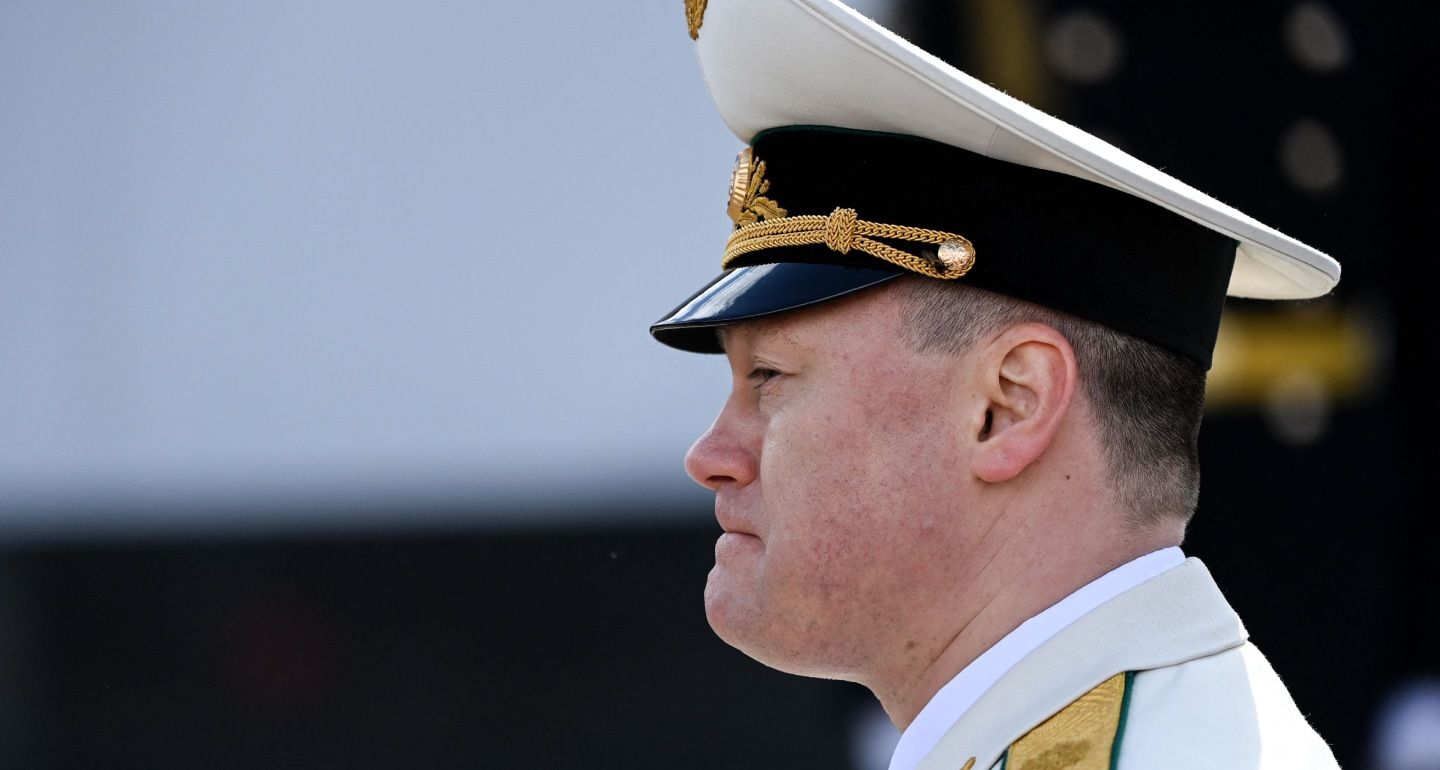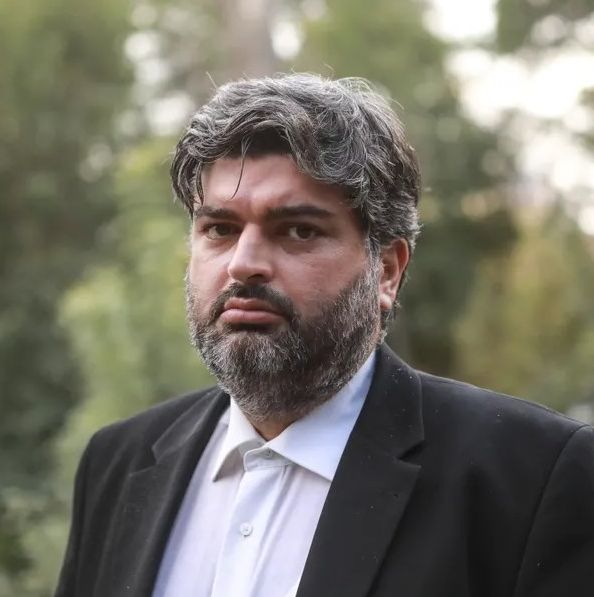For a real example of political forces engaged in the militarization of society, the Russian leadership might consider looking closer to home.
James D.J. Brown
{
"authors": [
"Vladislav Gorin"
],
"type": "commentary",
"blog": "Carnegie Politika",
"centerAffiliationAll": "",
"centers": [
"Carnegie Endowment for International Peace",
"Carnegie Russia Eurasia Center"
],
"englishNewsletterAll": "",
"nonEnglishNewsletterAll": "",
"primaryCenter": "Carnegie Russia Eurasia Center",
"programAffiliation": "",
"programs": [],
"projects": [],
"regions": [
"Russia"
],
"topics": [
"Domestic Politics",
"Political Reform"
]
}
Source: Getty
The emergence of Prosecutor General Igor Krasnov as the frontrunner to head Russia’s Supreme Court heralds little legal change, but does shed light on Kremlin priorities.
President Vladimir Putin looks set to appoint Prosecutor General Igor Krasnov as head of Russia’s Supreme Court following the death of Chief Justice Irina Podnosova on July 22. As is often the case with top jobs in the Russian system, the emergence of Krasnov as the only candidate was a surprise. Days earlier, the most likely person for Russia’s most important judicial post was considered to be Investigative Committee head Alexander Bastrykin. In the end, however, Bastrykin—an old comrade of Putin’s—was passed over for the young prosecutor: an outcome illuminating priorities both in the Kremlin and Russia’s legal system.
Krasnov has had an extraordinarily successful career to date. Aged just 49, almost all his working life has been spent with Putin as president. He got his first job as an investigator in Arkhangelsk in 1997, and was sent to Moscow in 2005 for a major investigation into the attempted assassination of Anatoly Chubais, the architect of Russia’s post-Soviet economic reforms. The following year, he got a job at the office of the Prosecutor General in Moscow.
Lawyer Yevgeny Smirnov describes Krasnov in the following way: “It’s obvious he was a really good investigator because it took him only ten years to go from being a student to a major crimes investigator in the central office in Moscow … He didn’t get involved in anything that could harm his superiors or the country’s political leadership.”
It was at roughly the same time that Krasnov moved to Moscow that the Investigative Committee emerged as an agency within the office of the Prosecutor General. Headed by Bastrykin, it quickly began to fight a turf war with its own parent organization, and a few years later, was spun off as a separate body.
Being hired by the Investigative Committee—at that point little more than a bureaucratic startup—opened up new opportunities for Krasnov. By 2016, he had been made Bastrykin’s deputy, having worked on high-profile cases including the murders of human rights lawyer Stanislav Markelov and journalist Anastasia Baburova; corruption during the construction of Vostochny Cosmodrome; and the killing of opposition leader Boris Nemtsov.
It was apparently the Nemtsov investigation that marked a turning point in Krasnov’s career: this was the moment he was able to show Putin that he was not only a talented investigator, but also a reliable pair of hands. Krasnov brought cases against the hitmen who had killed Nemtsov—but not, importantly, against those who had organized or ordered the assassination—and likely presented his findings to Putin in person. This was apparently precisely the outcome that the Kremlin was seeking, and Krasnov was promoted during the course of the investigation.
In 2020, Putin made Krasnov prosecutor general, replacing the influential Yury Chaika, who had been featured in widely watched damning investigations into corruption posted online by opposition leader Alexei Navalny. Unlike his predecessor, Krasnov did not create a corrupt clan with himself at the head. He was, however, a loyal executor of Kremlin policy.
Since the full-scale invasion of Ukraine in 2022, the office of the prosecutor general has played a key role in carrying out a wave of nationalizations. In March 2025, Krasnov gave a presentation in Putin’s presence in which he said prosecutors had been involved in cases that had brought almost 2.4 trillion rubles ($29.9 billion) worth of assets under state control. The reasons he gave for the seizures included transferring profits to “unfriendly” jurisdictions, violating obligations to employees, tax avoidance, and insufficient infrastructure investment. However, in practice, prosecutors have also cited extremism, corruption, violations of privatization rules (even for cases dating back to the 1990s), and the influence of foreigners as reasons for nationalization.
Before it emerged that Krasnov was the sole candidate to head the Supreme Court, a newspaper article had suggested Bastrykin was the leading contender. The other figure who has been linked—for over a decade—with the Supreme Court job is ex-president Dmitry Medvedev.
Both Bastrykin and Medvedev are lawyers. Both are graduates of the same university as Putin, and have known the president for many years. And both have proved their loyalty: Medvedev as president, and Bastrykin as the veteran head of a security agency. However, it seems both men have the same disadvantage as far as Putin is concerned when it comes to the Supreme Court job: they are too public. Medvedev regularly posts invective on social media, while Bastrykin reacts instantly to many media stories by announcing he is launching an investigation. In autocratic Russia, such public interventions are almost the only way to remind Putin of your existence, particularly if personal contact is limited. At the same, though, this behavior arouses suspicion.
Putin avoids appointing “political” officials who are too prominent in public life to top positions. And even though the legal system was brought under Kremlin control in the early 2000s, it remains an important part of the state apparatus. In addition, Putin prefers officials like Krasnov: those who have bureaucratic experience, but depend on him for their career success; who keep out of the public eye and do not stand out; who are uncharismatic; and who deliver results while understanding their bosses’ needs.
On the surface, the appointment of a security official like Krasnov to head the Supreme Court signals a period of even greater political control over the legal system, and its wholesale subordination to the executive branch of government.
At the same time, many lawyers believe such a signal is entirely unnecessary: after all, Russian courts have not enjoyed any independence for decades. The current way of operating was established under Vyacheslav Lebedev (head of the Supreme Court for thirty-five years until his death in 2024), and did not change under his successor Podnosova. It’s almost inevitable that it will remain the same under Krasnov. Indeed, like the judicial system as a whole, the Supreme Court implements Kremlin policy regardless of the incumbent chief justice.
Nevertheless, there is one important difference between Krasnov and his predecessor. Podnosova had argued for the decriminalization of economic crimes, and leaks suggested she had tried to ensure at least some degree of legality in the ongoing nationalizations. Given Krasnov’s track record when it comes to seizing assets for the state, there’s little chance he will take a similar position.
Carnegie does not take institutional positions on public policy issues; the views represented herein are those of the author(s) and do not necessarily reflect the views of Carnegie, its staff, or its trustees.
For a real example of political forces engaged in the militarization of society, the Russian leadership might consider looking closer to home.

James D.J. Brown
Instead of a guaranteed ally, the Kremlin now perceives Armenia as yet another hybrid battlefield where it is fighting the West.

Mikayel Zolyan
The supposed threats from China and Russia pose far less of a danger to both Greenland and the Arctic than the prospect of an unscrupulous takeover of the island.

Andrei Dagaev
Western negotiators often believe territory is just a bargaining chip when it comes to peace in Ukraine, but Putin is obsessed with empire-building.

Andrey Pertsev
Unexpectedly, Trump’s America appears to have replaced Putin’s Russia’s as the world’s biggest disruptor.

Alexander Baunov